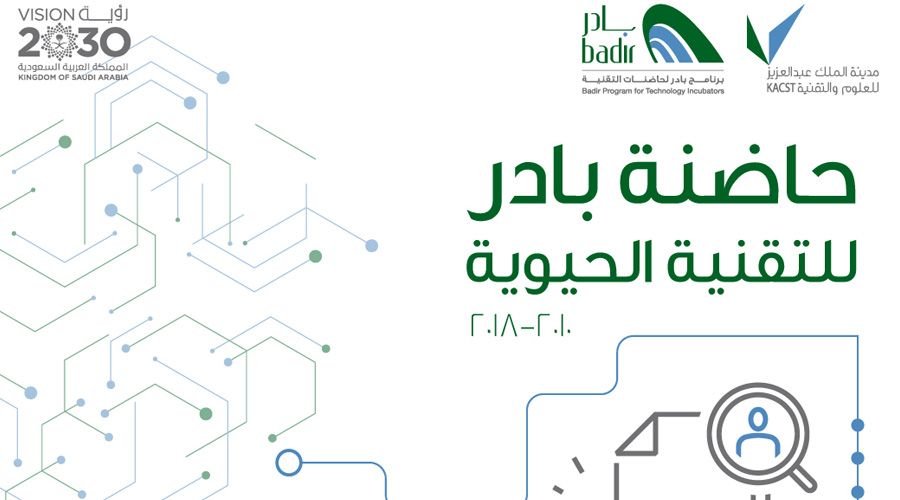Badir-incubated Biotech startups raised $2.6M in 2017

The Saudi biotech startups incubated by Badir Biotechnology Incubator, under King Abdul Aziz City for Science and Technology (KACST)’s Badir program, have raised close to 10 million Saudi Riyals (US $2.6 million) last year.
The funding deals were led by Venture Capital firms, individual investors’ networks, along with other governmental institutions. Self-financing accounted for approximately 15 percent of the total amount of investment reaching SR 1.5 million ($400,000). The share of government investment in these projects reached SR 3.5 million ($933,000), equivalent to 35 percent of the total investment and that of VC companies reached almost half of the invested capital, and totaled SR 5 million ($1.3 million).
Badir Biotechnology incubator was established in 2010 within the King Fahd Medical City complex in Riyadh. The incubator encourages and supports the establishment and development of the biotechnology business sector, through assisting the commercialization of research projects as well as private sector biotechnology innovative products and services. It aims to create advanced medical services, support the localization and commercialization of biotechnology, as well as to contribute to the advancement of the health sector in the Kingdom.
Nawaf Al Sahhaf, CEO of Badir Program for Technology Incubators, said: “Badir Biotech Incubator aims to encourage and support the launch of new biotechnology projects. The Incubator hosts pioneering projects for researchers, technicians, and doctors in the fields of biotechnology and life sciences, such projects that have the potential to grow into promising and valuable companies in the Kingdom.”
He explained that the incubator received over 400 applications since its establishment, and it is currently incubating about 26 technical projects, which achieved sales of SR 15 million ($4 million) and created over 116 job opportunities.
Al Sahhaf further added: “We look forward to supporting Biotech startups which have the basic factors that enable them to make quantitative changes in the main technology sectors. We expect a rise in the average of establishing and funding this type of companies in the coming years, especially following the adoption of new alternatives for offering flexible funding opportunities, hence assisting them in developing their investment plans and increasing their future expansions.”


